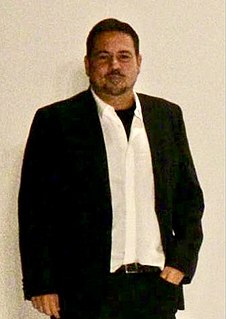A Quote by Bill Watterson
Virtual reality has nothing on Calvin.
Quote Topics
Related Quotes
[Calvin, who has the chicken pox, calls Susie on the telephone.] Susie: Hello? Calvin: Hi, Susie! It's me, Calvin! I was wondering if you'd like to come over and play. Susie: Why, sure! Boy, I don't think you've ever invited me to... Calvin's Mom: Calvin, what are you doing? Calvin: Nothing, Mom. Go away. Calvin's Mom: You're contagious! You can't have anyone over to play! Calvin: Shhhh! Shhhh! You'll spoil the whole thing! I was going to trick Susie into catching... HEY! OW! LET GO! Susie: [Hanging up the phone] Any chance of getting transferred, Dad?
If you're having a very high-adrenaline, high-movement experience in virtual reality, and then all of a sudden you're back in your office, that disconnect is pretty notable. Whereas if you're using it for virtual reality teleconferencing... there's really no kind of impact moving back and forth between the real and the virtual world.
The simulator is the stage in-between television and virtual reality, a moment, a phase. The simulator is a moment that leads to cyberspace, that is to say, to the process because of which we now have two bottles instead of one. I might not see this virtual bottle, but I can feel it. It is settled within reality. This explains why the word virtual reality is more important than the word cyberspace, which is more poetic.
At its very core, virtual reality is about being freed from the limitations of actual reality. Carrying your virtual reality with you, and being able to jump into it whenever and wherever you want, qualitatively changes the experience for the better. Experiencing mobile VR is like when you first tried a decent desktop VR experience.
Usually, companies, when they approach other people to do VR, they're like, 'We're gonna offer a virtual reality experience' - to me, that usually means they're gonna put a bunch of 360° cameras in a room, film something, and wrap the video in a sphere so you can head-track and look around. To me, that's not virtual reality. That's 360° video.






























